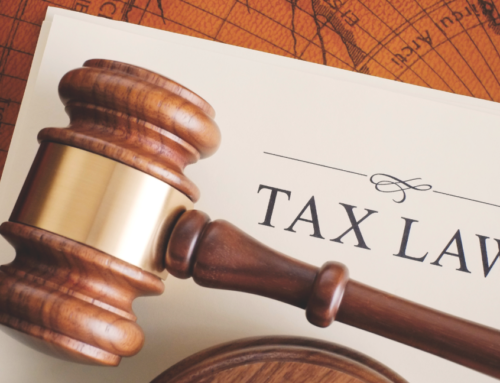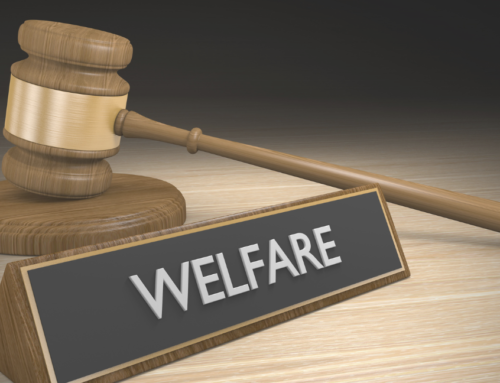When you need to pay personal income tax in Thailand, you are entitled to standard personal income tax deductions before calculating your taxable income. The standard deduction amount varies based on income levels. Standard tax deductions rate start from 10% to 60%. In case there is no specific deductions rate the actual expenses shall be deducted as necessary and appropriate.
Other personal income tax deductions are the basic deductions that are concerned with family structure (spouse, kids, parents), insurance, special investment or pension funds, and a few others. The deductions in various cases are different. Let’s go into details for the year 2024: It can be summarized as follows:
- Tax earner with income of 60,000 baht.
- Spouse without income of 60,000 baht.
- Both income earners or spouses have income. Total deductions do not exceed 120,000 baht.
- For Legitimate children and adopted children, each person can deduct 30,000 baht in deductible expenses. But together there must not be more than 3 people.
Children eligible for deduction must not have an income of 30,000 baht or more and meet the following:
(1) a minor, or
(2) The child is not more than 25 years old and is studying at a university or higher education, or
(3) a person who has been ordered by the court to be incompetent or quasi-incompetent and is under foster care.
- Support costs for parents who are 60 years of age or older and are under the care of an income earner. The parents must have assessable income in the tax year for which the deduction is not more than 30,000 baht, with a deduction of 30,000 baht per person and an additional 30,000 baht deduction for the parents of the spouse can be deducted.
- Expenses for supporting and caring for disabled or handicapped people. Deducting allowance of 60,000 baht per person.
- Life insurance premiums (Policy life of 10 years or more) of income earners up to the amount paid but not exceeding 100,000 baht. Income earners also have the right to deduct taxes for life insurance premiums of spouses who do not have income, the amount paid but not more than 10,000 baht, but in case both husband and wife have income, both income earners, are exempt from tax for the amount paid. Only the portion that exceeds 10,000 baht but not more than 90,000 baht, which is not more than the assessable income of each person after deducting expenses.
- Health insurance premiums for parents of income earners and spouses deduct the allowance as much as paid, but not more than 15,000 baht. However, the parents of the income earner and spouse must not have assessable income in the tax year in which the income tax exemption is exercised in excess of 30,000 baht.
- Accumulated money was paid into the provident fund. Deductions can be made according to the amount paid in the tax year, but not more than 10,000 baht. The amount that exceeds 10,000 baht but not more than 490,000 baht, which is not more than 15 percent of wages, must be deducted from income.
- Payments for purchasing investment units in Retirement Mutual Funds (RMF) are exempted to the extent they are paid for purchasing investment units in Retirement Mutual Funds in accordance with the law on securities and exchange. At a rate not exceeding 30% of the assessed income received, which must pay income tax in that tax year.
- Pension life insurance premiums, a deduction is deducted at the rate of 15% of the income used to pay income tax each year, but not more than 200,000 baht per year. This must be the cost of pension life insurance premiums. Coverage for 10 years or more and pension benefits paid when the income earner is 55 years old or older to 85 years old or older.
- National Savings Fund savings According to the amount paid, but not more than 500,000 baht.
NOTE that 3.2.10, 3.2.11, and 3.1.12 together deductions must not exceed 500,000 baht.
- Expenses for purchasing investment units in Savings Funds (SSF) deduct deductions as much as paid. But not more than 30 percent of the assessable income received is subject to income tax in that year, but not more than 200,000 baht.
- Interest on loans paid to banks or other financial institutions. Life insurance companies, cooperatives, or employers for borrowing money to buy, lease, or build a residential building. By mortgaging the building you purchase or build as collateral for the loan. Deduct deductions according to the amount paid, but not more than 100,000 baht.
- Social Security contributions Deduct deductions to the extent of actual assessed income received that is subject to income tax in that year, but not more than 200,000 baht.
- Health insurance premiums Deduct the deductible as paid, but not more than 25,000 baht, but when combined with life insurance premiums for life insurance policies with a term of 10 years or more, it must not exceed 100,000 baht. This is for insurance premiums paid from 1 January 2020 onwards.
- Donations
(1) Donations to support education/sports/social development, deductible at 2 times the amount paid but not more than 10 percent of income after deducting expenses and deductions.
(2) Donations made through the electronic donation system (e-donation) are deductible 2 times the actual payment but not more than 10 percent of income after deducting expenses and deductions.
(3) General donations can be deducted as much as paid but not more than 10 percent of income after deducting expenses and other allowances.
(4) Donations to political parties and deductions can be made as much as paid but not more than 10,000 baht. - Amount of purchase and installation of closed circuit television camera system Deduct deductibles as much as paid (in the Special Development Zone only).
- Prenatal care and maternity expenses are deductibles as much as paid. Each time not more than 60,000 baht.
- Investments in stocks or partnerships to establish or increase company capital or a juristic partnership that has been registered as a social enterprise and has registered as a social enterprise can be deducted as much as paid, but not more than 100,000 baht.
- The amount of purchasing goods or services from Shop Dee Mee Kun can be deducted as much as paid, but not more than 30,000 baht. Amount of cost of purchasing goods or services from a business that registers for VAT and receives a tax invoice. Amount of buying books, e-books, or purchasing 1 sub-district 1 product (OTOP).
Tax residents in Thailand are required to file an annual personal income tax return by March 31 of the following year or by April 9 when filing by e-services. Don’t forget that every tax year has its own “special deductions” so don’t hesitate to reach us every year for your legal update.




